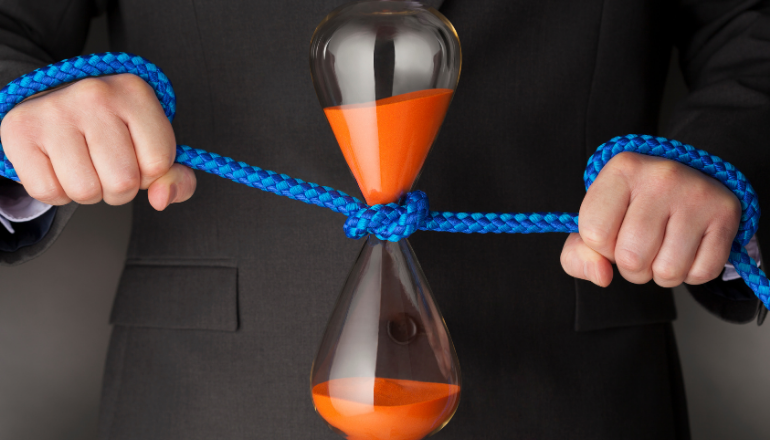by Ekta Vats
INTRODUCTION
Condonation of delay means the extension of the limited time period as given under the limitations act,1963. The aggrieved party needs to show sufficient cause for the delay and if the court finds it as sufficient then such appeal or we can say the application is admitted by the court even after the limited time frame as prescribed by the Limitations act,1963. Hence we can say that condonation of delay is the exception of the limitations act, 1963. Section 5 of the limitations act says about the extension of the prescribed time period if sufficient cause is given by the aggrieved party. It means that if the party doesn’t show any reasonable ground for the delay then his appeal gets rejected by the court.
LIMITATION ACT, 1963[1]
The limitation act, 1963 came into force after repealing of Limitation act, 1908 by the Third law commission. It basically contains 32 sections and 137 articles. This act provides a limited time period for different cases in order to prevent litigation from being dragged into longer periods of time and to give quick disposal of cases.
Section 3 of the Act says that if any suit or application is bought before the court after the expiration of time as mentioned then the appeal will get dismissed by the court. So appeal must be filed within the prescribed time in order to obtain further proceedings. However, condonation of delay is one of the exceptions to this act as it is the extension of the prescribed time period as given under limitation act,1963.
DOCTRINE OF CONDONATION OF DELAY
This doctrine of condonation of delay is the extension of the prescribed time period under the limitation act,1963 which provides the maximum time period for filing an appeal or application. This doctrine is applied to criminal cases only and is not available to execution proceedings. It is applied only when there is an interpretation of sufficient cause, then only the court accepts the appeal otherwise dismisses it. Hence for taking the benefits of this doctrine the applicant must need to prove sufficient cause in order to condone the delay. This doctrine doesn’t include suit, the reason is given below.
The reason behind the exclusion of suit under the doctrine of condonation of delay?[2]
This doctrine includes appeal, application but is not suit under section 5 of the limitation act. The reason behind the exclusion of the term suit is section 3 of the limitation act. This section says that if any suit is filed after the expiration of the prescribed time period, then that suit is dismissed. So if the suit is included in section 5 then section 3 pertains to be irrelevant and will have no effect.
An expression ‘SUFFICIENT CAUSE’
The above expression has not been defined in the Act, it has a wider meaning, it is very comprehensive and broad in nature. The cause must be beyond the control of the invoking. In order to advance the cause of justice, it is construed liberally.
The two rules were laid down with regards to the expression sufficient cause by the Court:
a) The cause must be beyond the control of the invoking.
b) The parties must not be lacking bona fide, not be shown to be negligent or inactive.
General principles of the doctrine of condonation of delay
- The applicant must satisfy the court for not filing the application under the prescribed time. It means party must show the sufficient cause (reasonable grounds) for delay in filing the application.
- The event should occur before the period of expiration and not after the expiration period, if occurred so then sufficient cause will not be considered and at last the application or appeal will be dismissed by the court.
- It is the discretion of court to consider appeal or not, i.e the court can dismiss the appeal even after the proof of sufficient cause.
- The decision should not be mala fide or arbitrary, it must be judicial.
Instances where delay condoned
Under the following circumstances delay can be condoned:
- If applicant is suffering from fever.
- If applicant is minor who is not able to understand the procedure of court.
- If applicant has not sufficient money.
- If applicant is suffering from mental shock because of personal loss.
- If father of applicant is illiterate who needs more time for filling the application or appeal.
Case laws
- Union of India v. Tata yodogawa Ltd, 1988[3]
In this case, the application for the condonation of delay gets dismissed by the court as there is no accurate explanation being explained by the applicant for the cause of delay in filing the special leave petition. Hence dismissed.
- Collector of Central Excise, Madras v. A.MD Bilal & Co., 1999[4]
In this case, the Supreme Court declined to condone the delay of 502 days in filing the appeal because there was no satisfactory or reasonable explanation rendered for condonation of delay.
CONCLUSION
It can be concluded that with this doctrine the main aim of the court is to provide justice and if a suit is filed after the limitation period then the appeal will dismiss but some exceptions go on with this doctrine i.e., the Doctrine of condonation of delay which provides the acceptance of appeal even after delay but the reason behind delay must show sufficient cause.
[1] Limitations act, 1963
[2] https://blog.ipleaders.in/condonation-of-delay/
[3] 1988 (38) Excise Law Times 739 (SC)], https://indiankanoon.org/search/?formInput=condonation%20of%20delay
[4] 1999 (108) Excise Law Times 331 (SC)], https://indiankanoon.org/search/?formInput=condonation%20of%20delay
[5] picture: the indian corporate law


Very informative
LikeLike
Informative and we’ll researched. Keep writing keep sharing.
LikeLike
Thanku so much sir😊
LikeLike
U did really hard research.
Ur execution of contents is very good.
LikeLike
Thanku 🌺
LikeLike
Well done ektu.. keep going!!
LikeLike
Thanku 😊
LikeLike